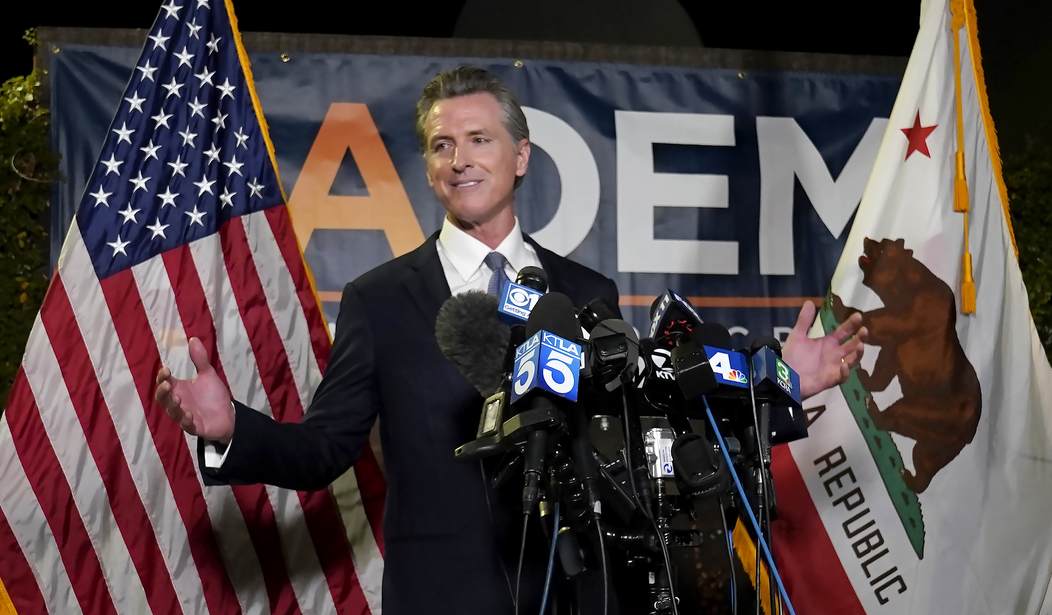One of the banes of the modern world is hip-hop, or “rap,” as they used to call it. The biggest bane of all when it comes to rap music is “gangsta rap” — a term wildly out of date but used in this context as an accurate reflection of who’s doing the rapping.
It doesn’t matter if the artist was educated at Harvard or on the mean streets of New York or L.A., the genre glorifies lawbreaking, violence, and especially hatred of the police.
Now, the individuals rapping about killing, raping, and enacting death fantasies of police are not the brightest bulbs in the room. They tend to mix their real-life exploits in with their rapping. As such, prosecutors have been able to convict some hip-hop artists who committed crimes by using their lyrics against them in court.
Recently, a Grammy-winning hip hop artist named “Young Thug” was indicted on racketeering charges when he stupidly laid out his criminal activity in his lyrics. Gov. Gavin Newsom just signed a law to make sure an outrage like that never happens in California. The bill would ban the use of hip-hop lyrics as evidence in criminal trials in most cases.
Under the new law, California courts must consider, if relevant and provided, testimony on the context of a genre of creative expression, “research demonstrating that the introduction of a particular type of expression introduces racial bias into the proceedings,” as well as evidence rebutting those findings.
In addition to limiting the use of rap lyrics in California criminal court proceedings, the legislation, which passed unanimously in the California state Senate and Assembly, also encompasses the use of “performance art, visual art, poetry, literature, film, and other media.”
It’s true that most hip-hop artists are not criminals and that the poetry they spout is not all about death and violence. But if a criminal is dumb enough to give the prosecutor ammunition to send him to prison, he should be given all the rope he needs to hang himself.
Scholars Erik Nielson and Andrea Dennis, authors of “Rap on Trial: Race, Lyrics and Guilt in America,” have argued that “Rap music is the only fictional musical genre used this way because its primary producers are young Black men, who the criminal justice system happens to target.” They say the genre’s lyrics are vulnerable to being perceived as self-incriminating to law enforcement because of trends in first person narration and focuses on “criminal themes” and “violent imagery.”
Is it really all “fictional”? A 2011 murder case reported in the New York Times was solved when a local rapper boasted in a YouTube video about murdering someone.
“But nobody saw when I [expletive] smoked him,” Antwain Steward sang on the video. “Roped him, sharpened up the shank, then I poked him, .357 Smith & Wesson beam scoped him.”
There were many similarities between what Steward sang about and the actual crime but little physical evidence. Steward walked.
“If you aspire to be a gangsta rapper, by definition your lyrics need to be violent,” said Charis E. Kubrin, an associate professor of criminology, law, and society at the University of California, Irvine. That may be true, but if the rapper brags about committing the crime in his art, why is he allowed to hide behind the First Amendment?
“Just because you put your confession to music doesn’t give you a free pass,” said Alan Jackson, a former senior prosecutor in the Los Angeles County district attorney’s office.
Unfortunately, that free pass has now been signed by Newsom.










Join the conversation as a VIP Member